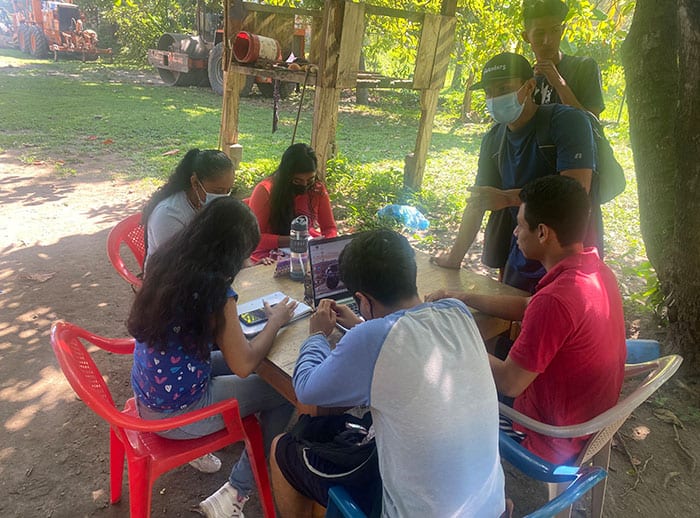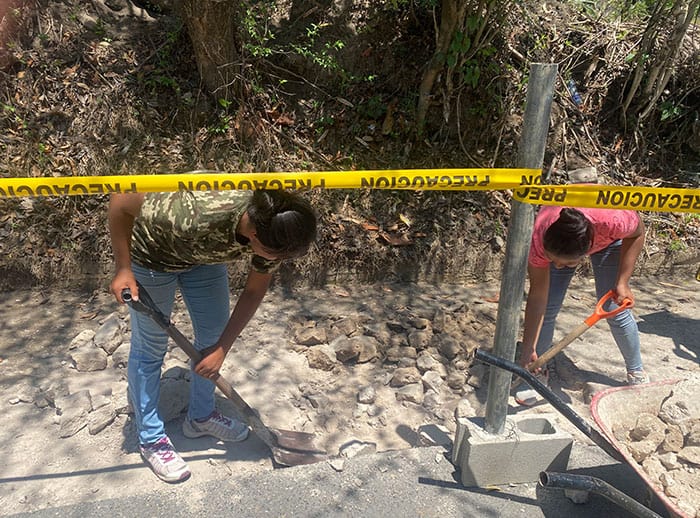A Maryknoll lay missioner reflects on Salvadoran crackdown on gangs that sweeps up the righteous along with the wicked.
Inclusion is an essential value to the work of the Maryknoll Lay Missioners. Many of our ministries address ways we can help create opportunities for those in the margins and work together to create a more just world. In one of his famous homilies, Salvadoran martyr Blessed Rutilio Grande reminded the Salvadoran people that Jesus invites everyone to have a seat at the table and participate in the banquet. We must look for the presence of God and the dignity that each person possesses and strive to build a world where everyone is welcome.
Recently it has been very difficult to find the value of inclusion in El Salvador. After an increase in gang-related murders at the end of March, the Salvadoran government implemented a state of emergency and suspended many rights for due process. The police can arrest someone up to 15 days without any formal charges and also search cellphones to find any connection to gangs. This has led to an increase in military and police presence in the most marginalized communities as well as frequent house-to-house searches for anyone connected to the gangs.

César tutoring high school students outside our community library. Photo courtesy of Maryknoll Lay Missioners/El Salvador)
Since the end of March, more than 38,000 people have been arrested. The jails and prisons were already overcrowded before the state of emergency, and now there are long lines of people outside, just looking for some information about their relatives who have been arrested. There have also been many reports of people being detained who do not have any connection to the gangs.
This new reality is especially hard on young people from marginalized communities. They are caught in the middle of the war on gangs and have to worry about being targeted by both the gangs and the military. Many people feel like it is illegal to be young and poor in El Salvador. This, together with a lack of employment and educational opportunities, creates a society of exclusion for the youth. Only an estimated 40% of Salvadorans graduate from high school, and only about 9% from college. Many young people feel a sense of despair and lack hope for a bright future.

Our students helping to repair the street. Photo courtesy of Maryknoll Lay Missioners/El Salvador)
This new reality has hit the young people in our programs very hard. One of our college scholarship students, César, who is also in charge of the community library, was detained with his brother while coming home from studying for his midterms. He was released after spending the night in jail and had to make up his test. His brother has yet to be released, and César is working with the university to get his brother out of jail. Young people like César are working very hard to succeed but keep getting pushed aside by society. This is the harsh reality for young people in El Salvador, and it becomes harder and harder for them to find opportunities.
Despite the difficulties, our young people continue to work to build a more inclusive world. César continues study at the university and lead programs for the youth. Our students tutor kids in the library, help repair the street and lead a community environmental campaign. They continue to go to school and make sacrifices for the betterment of their families and community.
They live out Padre Grande’s message that everyone is invited to the table by working to create opportunities for the next generation. They have taught me so much about the value of inclusion from the perspective of the margins. I continue to believe that, by working together, we can find the dignity in all of creation and create a world full of love and opportunities.
To reach the original of this article, go to the website of the Maryknoll Lay Missioners.
Featured image: Scholarship students in a ministry of the Maryknoll Lay Missioners in El Salvador clean up trash along the road. Photo courtesy of Maryknoll Lay Missioners/El Salvador)

